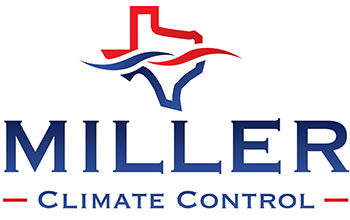
Ever done a double take when you viewed your last energy bill? While high energy bills can be the consequence of intense weather events, consistently high bills can also suggest an inefficient HVAC system or your home is misusing energy through other means, including drafty windows or insufficient insulation.
One of the simplest ways to identify whether your home is using too much energy is by getting a home service specialist to complete a home energy audit, also called a home energy assessment. Keep reading to learn all about home energy audits, including what they are and their key elements.
What Is a Home Energy Audit?
An energy audit is a comprehensive inspection of how much energy your home uses and whether – and where – your home could be losing or wasting energy. An inspector will go through previous energy bills during an energy audit to figure out where energy is being consumed and how much.
The overall goal of an energy audit is to help homeowners save money on their energy bills by suggesting energy-efficient renovations, which can include swapping out your existing HVAC system, putting in new insulation, closing up leaks, or replacing drafty windows.
During the energy assessment, the auditor carries out an inspection of the outside and inside of your home. The auditor will perform a blower door test on doorways, windows and fireplaces to find out if there are air leaks in your home. They’ll also inspect your home’s HVAC system, as well as the ductwork, the water heater, and the insulation in your attic. Exhaustive assessments could also include inspecting your current lighting system.
Benefits of a Home Energy Audit
It can be tough for the average homeowner to know for sure how efficient their home is in comparison to other similar homes in their community. However, many energy companies often provide information about where your home ranks in comparison to similar homes and whether it’s more efficient, about average, or inefficient versus your neighbors’ homes. This is a good starting point to figure out if you need an energy audit performed.
Some of the benefits of a home energy audit include:
Recognizing How Efficient Your Home Is
It’s good to learn more about how efficient your home is and where you’re using up the most energy. For example, if your ducts are leaking air, it will result in a large increase in your energy bills and excessive wear and tear on your HVAC system as it has to run longer to completely heat or cool your home.
Making Energy-Efficient Updates
An energy audit will outline where you need to make energy-efficient improvements to cut back on energy and reduce utility bills. This might include replacing worn-down weatherstripping or installing a new energy-efficient furnace.
Enhancing Health and Safety
Allowing air to leak into your home through doors and windows, or as a result of a lack of insulation can cause unwanted moisture to build up, which may negatively affect your home’s humidity levels or encourage mold. This can cause health conditions, especially for people suffering from asthma or allergies.
Adding to Your Home’s Retail Value
Energy-efficient homes are sought after by homebuyers. You can sell your home sooner or for more money by telling prospective buyers that it’s energy efficient.
How to Perform an Energy Audit of Your Home
Although performing an energy audit independently will not be as detailed as calling a professional, it’ll offer a broad idea of how energy efficient your home is. If you don’t discover any flaws during the DIY test, then you likely don’t need to hire a professional. Follow this step-by-step checklist:
- Review your HVAC system. Broken ducts can lose nearly 20% of conditioned air, leading to steeper energy bills and increased wear and tear on HVAC equipment. If you notice leaks, use duct tape to plug them. If your HVAC equipment is old and inefficient, upgrading to a new system can save you a significant amount on your energy bills. In some cases, it might be better to hire a reputable HVAC company to inspect your system.
- Look for air leaks. Air leaks on average can increase monthly energy bills by 10 to 20%. Inside, look for air leaks in areas where you can find a draft, such as along the edge of flooring and along baseboards and electrical outlets. Outside, you can inspect for air leaks in the home’s foundation, siding and mortar. Plug, caulk or seal any air leaks to save money.
- Inspect insulation. If your home is older, it could mean your insulation is too. If you can see the joists, you likely need more insulation.
- Check ventilation. Check that all of your kitchen and bathroom exhaust fans are spinning properly, and inspect for evidence of rot or moisture.
Contact Miller Climate Control LLC for a Professional Energy Audit
If you are interested in professional help finding out how energy efficient your heating and cooling equipment is, contact the HVAC professionals at Miller Climate Control LLC today. We’ve proudly supported the residents of Georgetown with quality home services for a long time. Contact us today to request an appointment.

